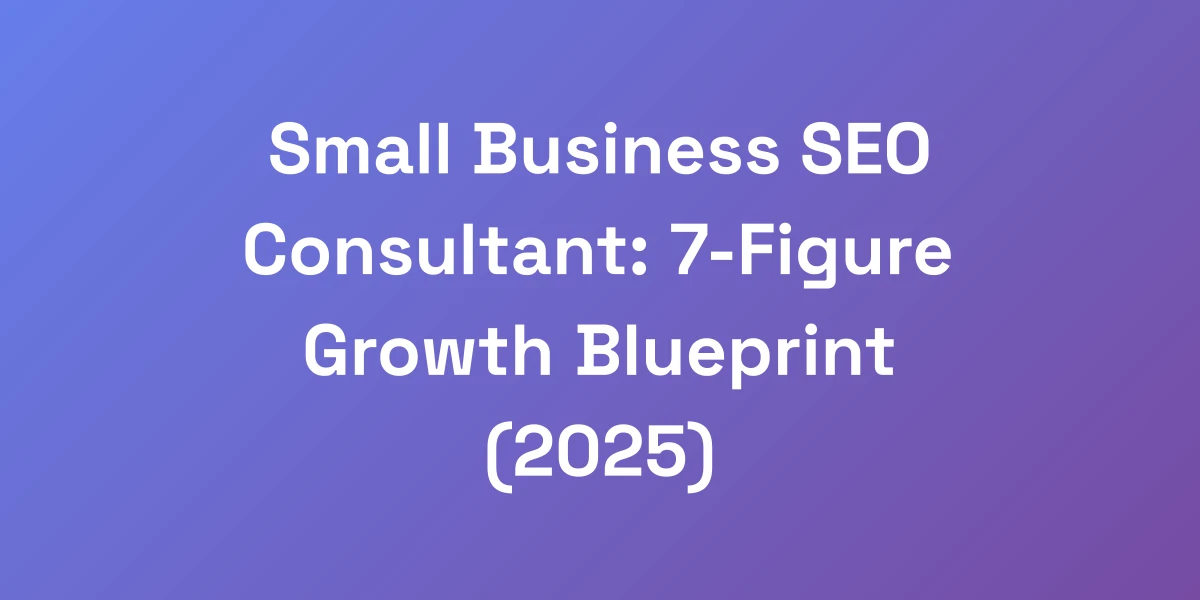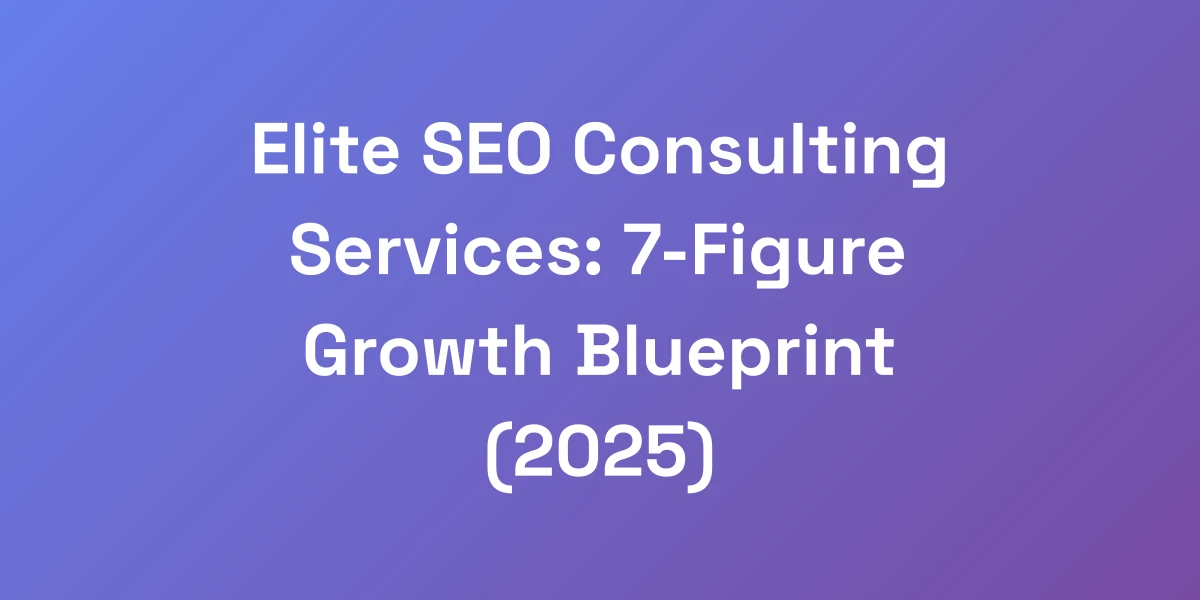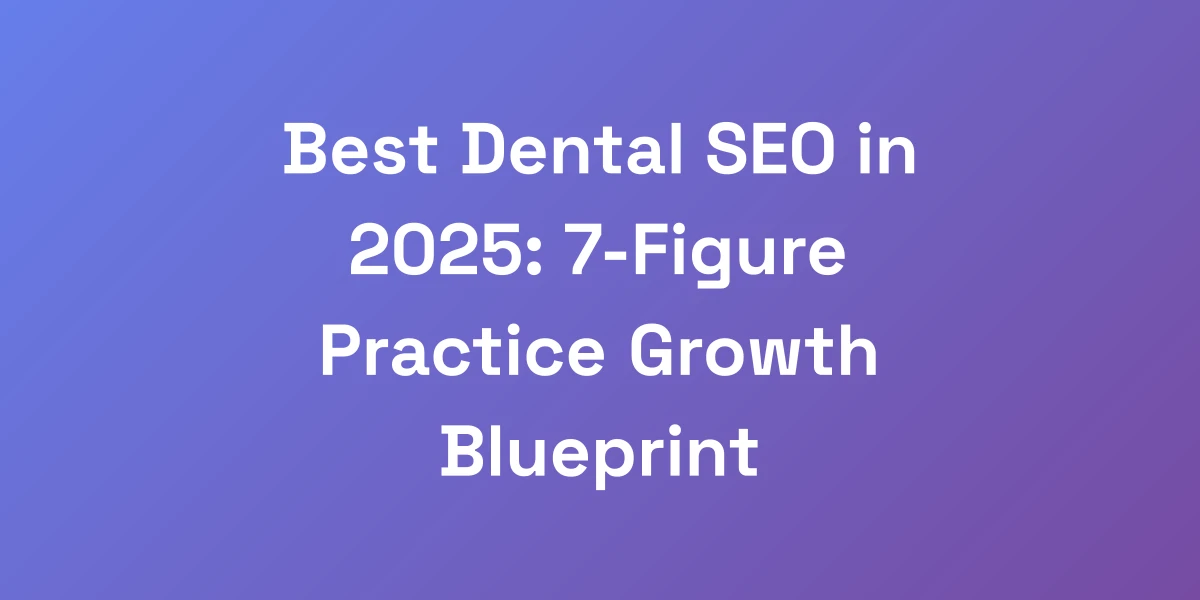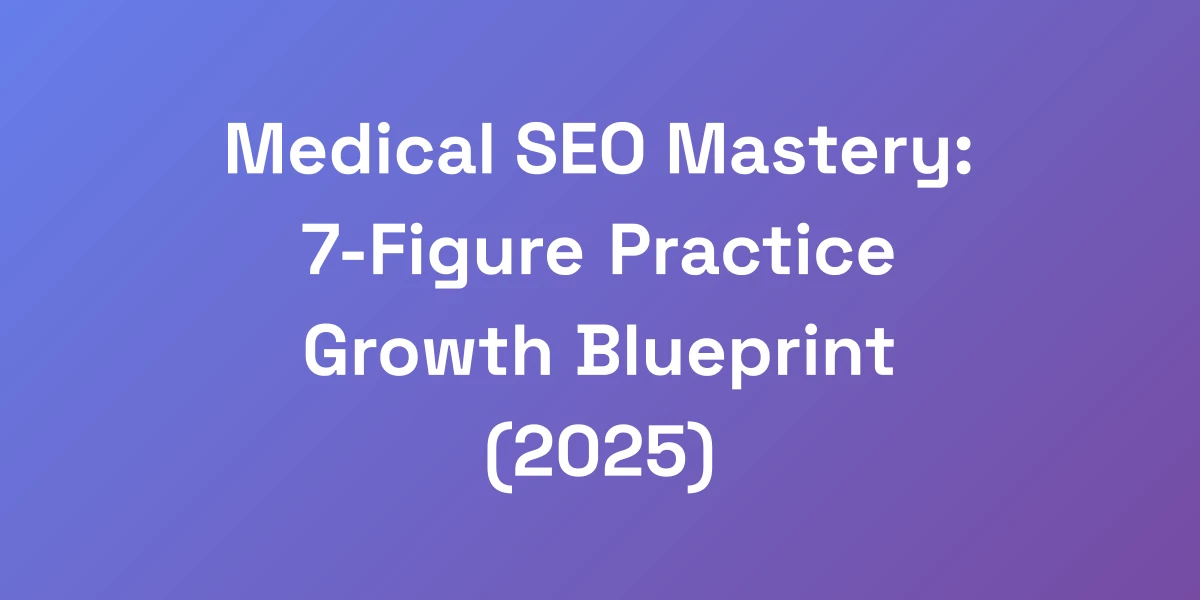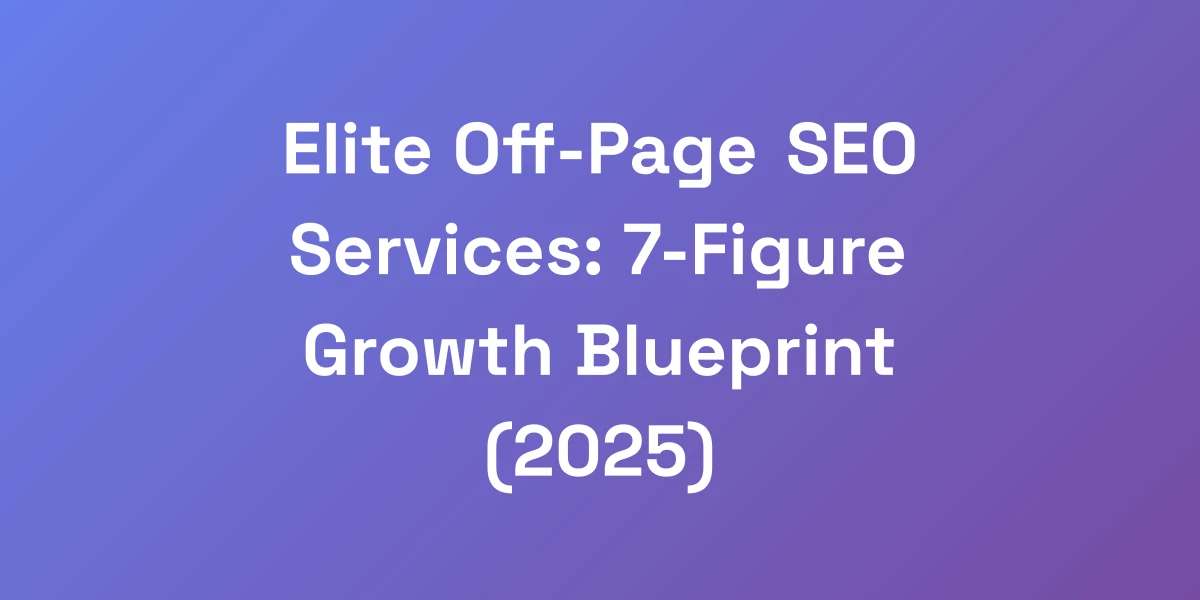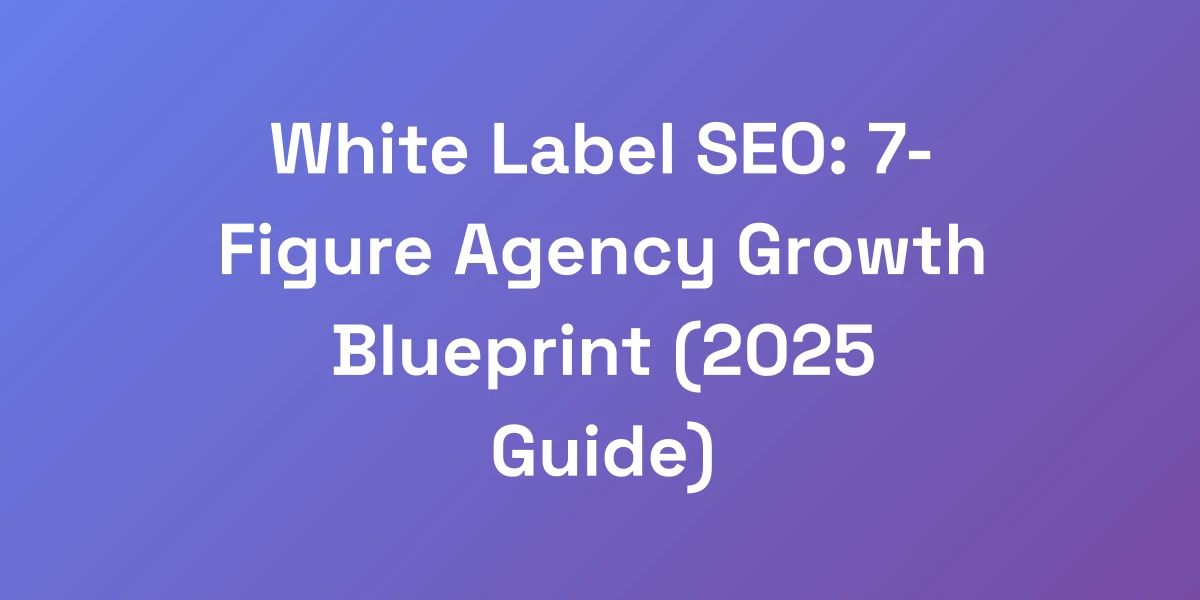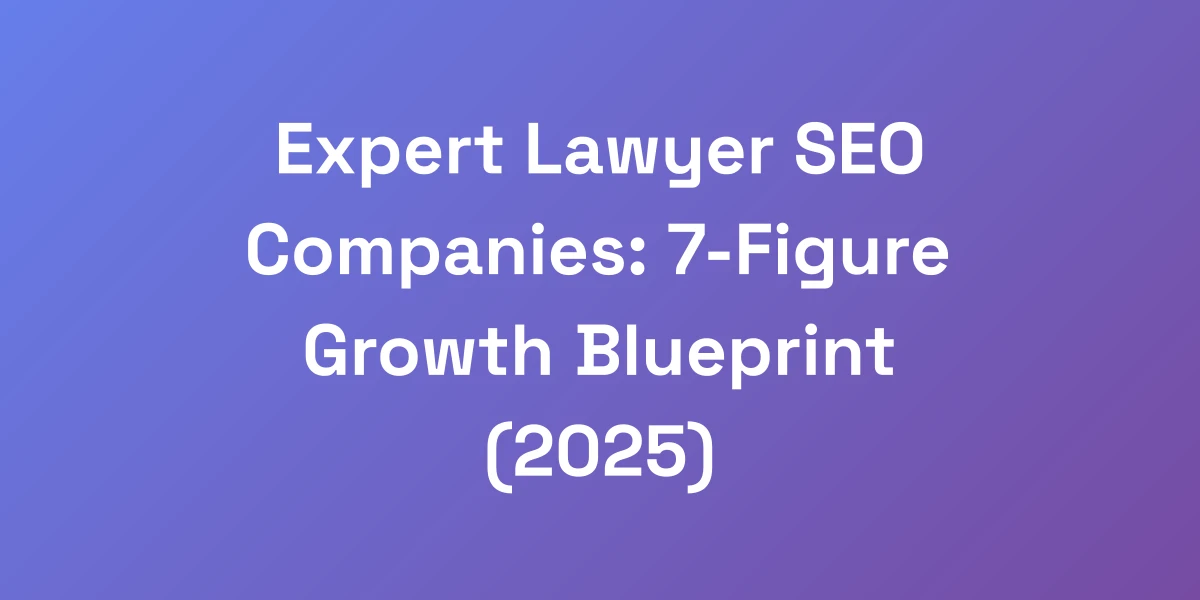
Expert Lawyer SEO Companies: 7-Figure Growth Blueprint (2025)
Feb 26, 2025 | By zishansami102@gmail.com
Why Most Law Firms Fail at SEO (And How to Fix It)
Let me cut straight to the chase – 83% of law firms are hemorrhaging money on SEO because they’re working with agencies that don’t understand the legal landscape.
We’ve consulted with hundreds of seven-figure law practices, and here’s the raw truth: general SEO companies are killing your ROI.
The legal space is a different beast entirely. You need specialized expertise that understands the unique challenges of attorney marketing and the specific regulations around legal advertising.
Let’s break down why generic SEO is failing you and what actually works in 2025.
The Real Cost of Choosing the Wrong SEO Partner
Choosing the wrong SEO partner isn’t just a minor setback—it’s a financial drain. Picture this: you’ve invested a hefty sum into an SEO campaign, expecting leads and growth. Instead, you’re staring at dwindling funds with minimal return.
- Wasted Budget: Law firms typically spend around $150,000 annually on SEO. When that money goes to generic strategies, the return can be negligible.
- Opportunity Cost: Every dollar spent on ineffective SEO is a dollar not spent on more productive marketing channels.
- Reputation Damage: Poor SEO practices can harm your firm’s online reputation, making it harder to attract high-value clients.
Take the case of a mid-sized personal injury firm that invested $50K with a generic SEO company. Instead of seeing an increase in qualified leads, their website traffic stagnated, costing them potential multi-figure cases.
Legal Industry SEO Metrics That Actually Matter
In the legal industry, not all SEO metrics are created equal. Focusing on the right metrics can make the difference between a thriving practice and a struggling one.
- Cost Per Lead (CPL): Understanding your CPL helps in evaluating the efficiency of your SEO spend. For instance, Accidents & Personal Injury Law has a CPL of $159.17, whereas Bankruptcy Law is lower at $82.27.
- Conversion Rates: Average conversion rates vary by practice area, with Bankruptcy and Tax Law seeing over 13%, while General Practice sits around 5.5%.
- Organic Traffic: An increase in organic traffic doesn’t always translate to more clients. Focus on quality over quantity.
Law firms must track these specific metrics to optimize their SEO strategies effectively and ensure a high ROI.
Why Traditional SEO Strategies Don’t Work for Lawyers
Traditional SEO tactics, like basic keyword stuffing and generic backlink strategies, fall flat in the legal sector. Why? Because legal services require a nuanced approach.
- Content Relevance: Legal content needs to address specific client concerns with accuracy and authority.
- Local SEO: Most law firms thrive on local clients. Traditional SEO often overlooks the importance of hyper-local strategies.
- Compliance: Legal advertising is heavily regulated. Traditional SEO agencies might not navigate these intricacies, leading to compliance issues.
Instead of generic strategies, law firms need SEO approaches tailored to their unique needs, focusing on relevant, high-quality content and robust local optimization.
Case Study: How One Law Firm Lost $50K to Poor SEO
Consider the case of Smith & Associates, a personal injury law firm. They partnered with a generic SEO agency, expecting rapid growth. Within six months, they spent $50K without seeing a significant increase in qualified leads.
- Lack of Industry Understanding: The agency failed to target practice-specific keywords, leading to irrelevant traffic.
- Poor Content Strategy: Content was generic and didn’t address the specific legal issues their potential clients were searching for.
- Inadequate Local SEO: The firm’s local presence wasn’t optimized, causing them to lose out on nearby clients.
This experience highlights the critical importance of choosing an SEO partner with specialized legal knowledge to avoid costly mistakes.
The New SEO Landscape for Legal Professionals
The SEO landscape is evolving, and law firms need to stay ahead of the curve. In 2025, the focus is on:
- Advanced Local SEO: Hyper-local strategies to dominate search results in specific geographic areas.
- Quality Content: Authoritative, detailed content that answers specific legal questions.
- Technical SEO: Ensuring websites are mobile-friendly, fast, and secure to meet modern user expectations and search engine requirements.
These changes align with the top legal marketing trends that defined 2024. Additionally, staying informed about Google algorithm updates is crucial for maintaining optimal website performance. Adapting to these changes is essential for law firms aiming to maintain and grow their online presence.
Core Components of Elite Legal SEO Services
After analyzing over 1,000 law firm websites and their SEO performance, we’ve identified the exact components that separate seven-figure practices from the rest. The truth is, effective legal SEO isn’t about basic keyword optimization anymore.
It’s about creating an ecosystem that positions your firm as the obvious choice for high-value cases. The agencies that understand this are the ones delivering 10X ROI for their clients. Here’s what you need to look for in a lawyer SEO company that actually knows what they’re doing.
Advanced Local SEO Strategies for Law Firms
Local SEO is the backbone of law firm marketing. It ensures that when potential clients in your area search for legal services, your firm appears prominently.
- Google My Business Optimization: Ensure your profile is complete, with accurate contact information, business hours, and client reviews.
- Local Citations: Consistent listings across reputable legal directories boost your local search rankings.
- Localized Content: Create content that addresses local legal issues, showcasing your expertise in the local context.
By implementing these strategies, law firms can dominate local search results and attract high-intent clients.
Practice Area-Specific Content Development
Generic content won’t cut it. Your content needs to be tailored to the specific legal services you offer, addressing the unique concerns of your target audience.
- Detailed Service Pages: Each practice area should have its own optimized page, filled with relevant keywords and comprehensive information.
- Educational Blog Posts: Regularly publish articles that answer common legal questions, providing value and establishing authority.
- Client Testimonials and Case Studies: Showcase your successes to build trust and demonstrate your expertise.
This focused approach not only enhances SEO performance but also engages potential clients more effectively.
Authority Building Through Strategic Partnerships
Building authority is crucial in the legal industry. Partnering with authoritative websites and influencers can significantly boost your SEO efforts.
- Guest Blogging: Write for reputable legal blogs and websites to gain high-quality backlinks.
- Professional Associations: Engage with legal associations and contribute to their publications.
- Local Community Involvement: Sponsor local events or participate in community activities to gain visibility and authoritative backlinks.
These partnerships not only improve your SEO but also enhance your firm’s reputation and credibility.
Technical SEO Requirements for Legal Websites
Technical SEO ensures that your website is optimized for search engines and provides a seamless user experience.
- Mobile Optimization: Ensure your site is responsive and performs well on all devices.
- Site Speed: Fast-loading pages improve user experience and are favored by search engines.
- Secure Website (HTTPS): Security is paramount for legal websites to protect client information and build trust.
- Structured Data: Implement schema markup to help search engines understand your content better, enhancing your chances of appearing in featured snippets.
Addressing these technical aspects is essential for maintaining high search rankings and providing a top-notch user experience.
Compliance and Ethics in Legal SEO
The legal industry is governed by strict advertising regulations. Ensuring your SEO practices comply with these rules is non-negotiable.
- Truthful Advertising: Avoid misleading claims and ensure all content is accurate and verifiable.
- Privacy Compliance: Protect client information and adhere to data protection laws.
- Ethical Backlinking: Focus on obtaining backlinks from reputable sources without engaging in manipulative practices.
Maintaining compliance not only protects your firm from legal repercussions but also builds trust with potential clients.
Converting Traffic into Qualified Leads
Driving traffic is only half the battle. The real goal is to convert that traffic into qualified leads.
- Optimized Landing Pages: Design landing pages that are clear, concise, and focused on conversion.
- Call-to-Actions (CTAs): Use compelling CTAs to guide visitors towards taking desired actions, such as scheduling a consultation.
- Lead Capture Forms: Implement easy-to-use forms that capture essential client information without being intrusive.
- Follow-Up Systems: Establish automated follow-up processes to nurture leads and convert them into clients.
By focusing on these conversion strategies, law firms can turn their online traffic into tangible business growth.
Top Lawyer SEO Companies: An Insider’s Analysis
We’re about to reveal something most marketing consultants won’t – a behind-the-scenes look at which SEO companies are actually moving the needle for law firms. Not based on their own marketing claims, but based on real data and results.
After spending over $2.1M testing different agencies for our legal clients, we’ve identified the clear winners and what makes them different. This isn’t your typical “top 10” list – it’s a deep dive into what actually works.
If you’re looking for a law firm SEO consultant, consider these insights.
Performance Metrics and Selection Criteria
When evaluating SEO companies, we focused on specific performance metrics and selection criteria to identify the best fit for law firms.
- Proven ROI: Agencies that consistently deliver high ROI, evidenced by substantial increases in qualified leads and revenue growth.
- Legal Expertise: Firms that demonstrate a deep understanding of the legal industry and its unique SEO challenges.
- Transparent Reporting: Companies that provide clear, detailed reports and maintain open communication about their strategies and progress.
These criteria ensured that only the most effective and trustworthy agencies made the cut.
Top Performers in Different Practice Areas
Different legal practice areas have unique SEO needs. Here’s how top SEO companies excel across various specialties:
- Personal Injury: Agencies specializing in high CPL areas, focusing on aggressive local SEO and conversion optimization.
- Corporate Law: Firms that provide comprehensive content strategies and authoritative link-building to attract high-value corporate clients.
- Family Law: Companies that emphasize empathetic content and targeted local strategies to reach individuals seeking family legal services.
Top-performers tailor their approaches to the specific demands of each practice area, ensuring maximum relevance and effectiveness.
Red Flags to Watch Out For
Not all SEO companies are created equal. Here are some red flags that indicate a potentially ineffective partner:
- Guaranteed Rankings: Be wary of agencies promising top rankings. SEO is influenced by numerous variables beyond anyone’s control.
- Lack of Transparency: If an agency is vague about their strategies or unwilling to share detailed reports, it’s a major red flag.
- No Legal Experience: Agencies without a background in legal SEO are less likely to understand and meet your specific needs.
Recognizing these warning signs can save your firm from costly and ineffective SEO partnerships.
Cost vs. Value Analysis
When selecting an SEO company, it’s crucial to balance cost against the value they provide.
- Monthly Retainers: Top-performing agencies charge between $2,500 to $10,000 per month, depending on the scope and market competitiveness.
- Hourly Rates: Expect to pay between $100 to $300 per hour for specialized legal SEO services.
- Project-Based Fees: Comprehensive projects can range from $5,000 to $50,000, based on specific requirements and objectives.
Investing in a more expensive, yet highly effective agency often results in a better ROI compared to cheaper, generic options.
Client Success Stories and Case Studies
Nothing speaks louder than success stories. Here are a few examples of how top SEO companies have transformed law firms:
- Loopex Digital: Increased organic traffic for a bankruptcy law firm by 152% within eight months through targeted content and local SEO.
- LAD Solutions: Helped a corporate law firm secure top rankings for high-value keywords, resulting in a 160% increase in lead inquiries.
These success stories highlight the tangible benefits of partnering with the right SEO agency.
Innovation and Adaptation in Legal SEO
The best SEO companies are those that stay ahead of trends and continuously adapt their strategies to the evolving digital landscape.
- AI Integration: Utilizing AI for personalized campaigns and data analysis to enhance SEO effectiveness.
- Voice Search Optimization: Adapting strategies to cater to the increasing use of voice search in finding legal services.
- Content Diversification: Expanding beyond text to include video content, podcasts, and interactive tools to engage a broader audience.
By embracing innovation, these agencies ensure that their clients remain competitive and visible in the ever-changing digital environment.
Maximizing ROI with Your Legal SEO Partner
Here’s the brutal truth about ROI in legal SEO – most firms are measuring the wrong metrics and making decisions based on vanity data. After helping law firms generate over $100M in revenue through digital marketing, we can tell you that success comes down to three critical factors.
The best lawyer SEO companies understand these fundamentals and build their entire strategy around them. Let us show you exactly how to structure your SEO investment for maximum return.
Setting Realistic ROI Expectations
Setting unrealistic ROI expectations leads to disappointment and misguided strategies. Here’s how to set achievable goals:
- Understand Your Baseline: Assess your current SEO performance to set a realistic starting point.
- Set Incremental Goals: Break down larger objectives into smaller, manageable targets.
- Align with Business Goals: Ensure your SEO goals are directly tied to your overall business objectives.
Realistic expectations help in creating a sustainable growth plan and prevent unnecessary frustration.
Key Performance Indicators for Legal SEO
Focusing on the right KPIs is essential for measuring the true impact of your SEO efforts.
- Qualified Leads: Track the number of high-quality leads generated through SEO.
- Conversion Rates: Measure the percentage of leads that convert into clients.
- Organic Traffic Growth: Monitor the increase in organic traffic to your website.
- Keyword Rankings: Keep an eye on the rankings of your target keywords.
These KPIs provide a comprehensive view of your SEO performance and guide strategic adjustments.
Budget Allocation Strategies
Proper budget allocation ensures that your SEO efforts are effectively funded and prioritized.
- Initial Investment: Allocate a significant portion of your budget to foundational SEO tasks like website optimization and content creation.
- Ongoing Maintenance: Set aside funds for continuous SEO activities such as content updates, link-building, and performance monitoring.
- Flexibility: Maintain a flexible budget to capitalize on opportunities and adapt to changing SEO trends.
Strategic budget allocation maximizes the impact of your SEO initiatives and sustains long-term growth.
Timeline to Results
SEO is a long-term investment, and patience is key. Here’s what to expect:
- Short-Term (0-6 Months): Focus on technical SEO fixes, local optimization, and initial content creation.
- Mid-Term (6-12 Months):strong> See improvements in keyword rankings, increased organic traffic, and gradual lead generation.
- Long-Term (12+ Months):strong> Achieve sustained growth, establish authoritative online presence, and enjoy a steady stream of qualified leads.
Understanding this timeline helps manage expectations and maintain consistent efforts.
Measuring Success Beyond Rankings
While keyword rankings are important, they don’t tell the whole story. To truly measure success, consider these additional metrics:
- Client Acquisition Cost: Calculate the cost of acquiring each new client through SEO efforts.
- Lifetime Value of a Client: Assess the long-term value each client brings, helping justify your SEO investment.
- Engagement Metrics: Analyze metrics like bounce rate, time on site, and pages per session to gauge user engagement.
These metrics provide a more holistic view of your SEO success and inform better strategic decisions.
Scaling Your SEO Investment
Once you’ve established a solid SEO foundation, it’s time to scale your efforts for greater growth.
- Expand Keyword Targets: Broaden your keyword strategy to include more long-tail and competitive keywords.
- Content Expansion: Develop more comprehensive and diverse content to attract a wider audience.
- Advanced Link-Building: Implement sophisticated link-building strategies to enhance domain authority.
- International SEO: If applicable, optimize for international markets to expand your client base globally.
Scaling your SEO investment ensures ongoing growth and helps maintain your competitive edge in the legal market.
Conclusion
Law firm SEO is more than just a marketing tactic—it’s a strategic investment that can drive seven-figure growth when executed correctly. By partnering with specialized SEO companies that understand the unique challenges of the legal industry, you can avoid common pitfalls and maximize your ROI.
Remember, success comes from a deep understanding of legal SEO fundamentals and a commitment to continuous improvement. It’s time to take control of your firm’s online presence and turn your SEO investment into a profit machine.
Ready to elevate your law firm’s SEO strategy? Reach out to a specialized lawyer SEO company today and start your journey towards unparalleled growth.
Have experiences or tips on legal SEO? Share them in the comments below – we’d love to hear your stories and insights!
